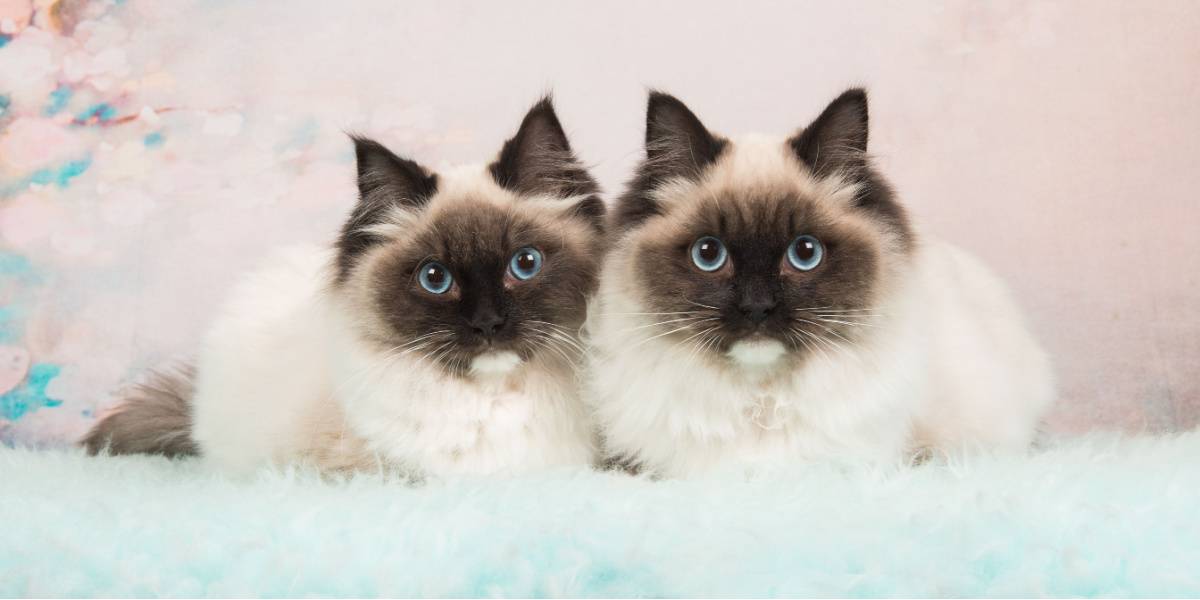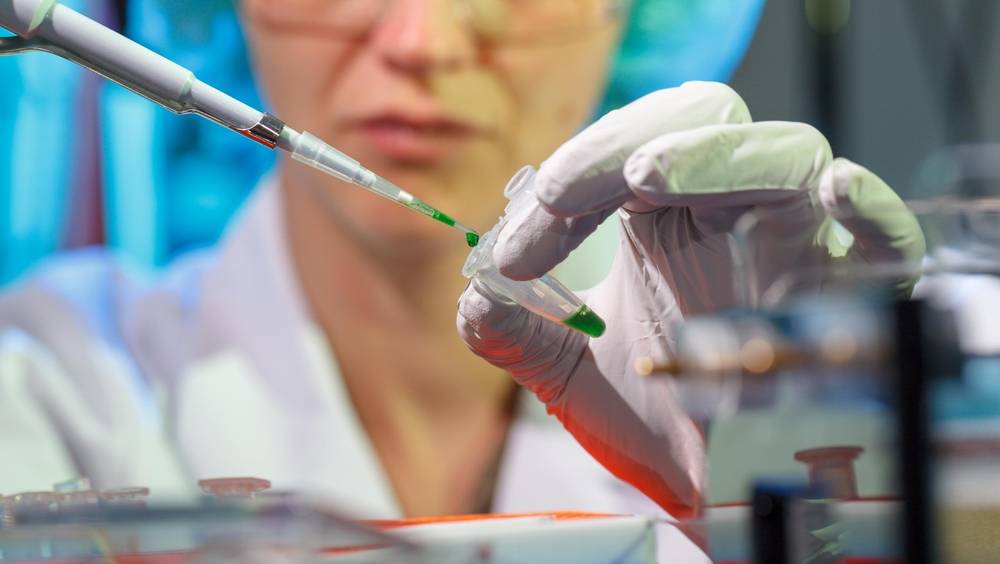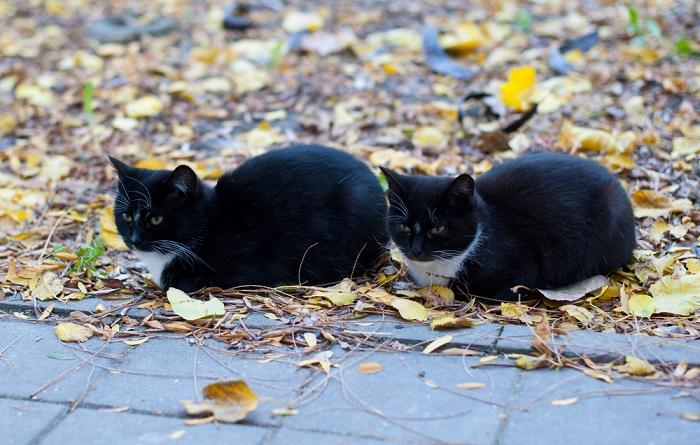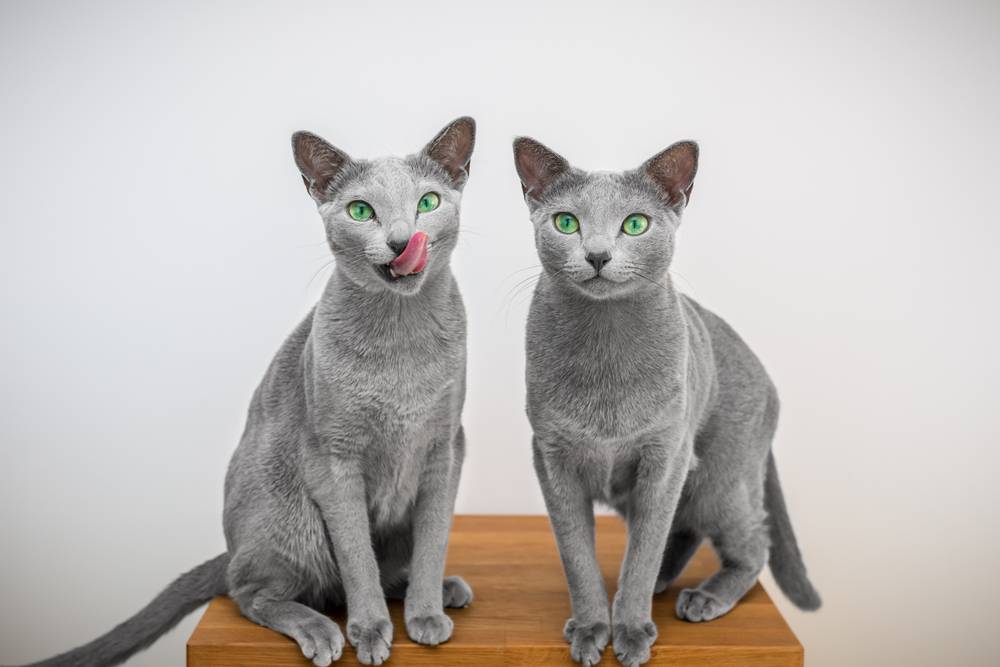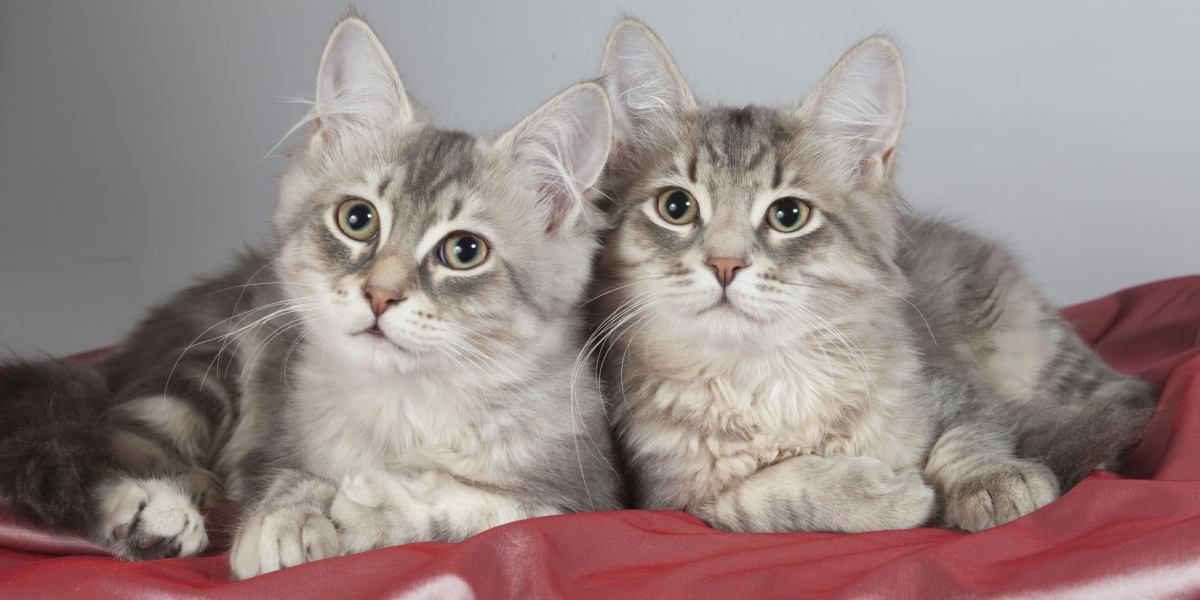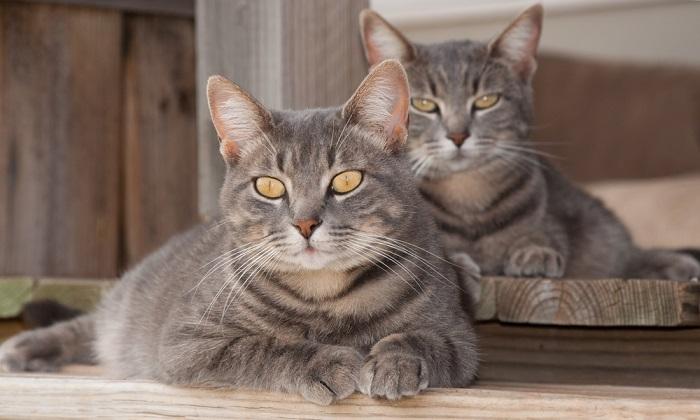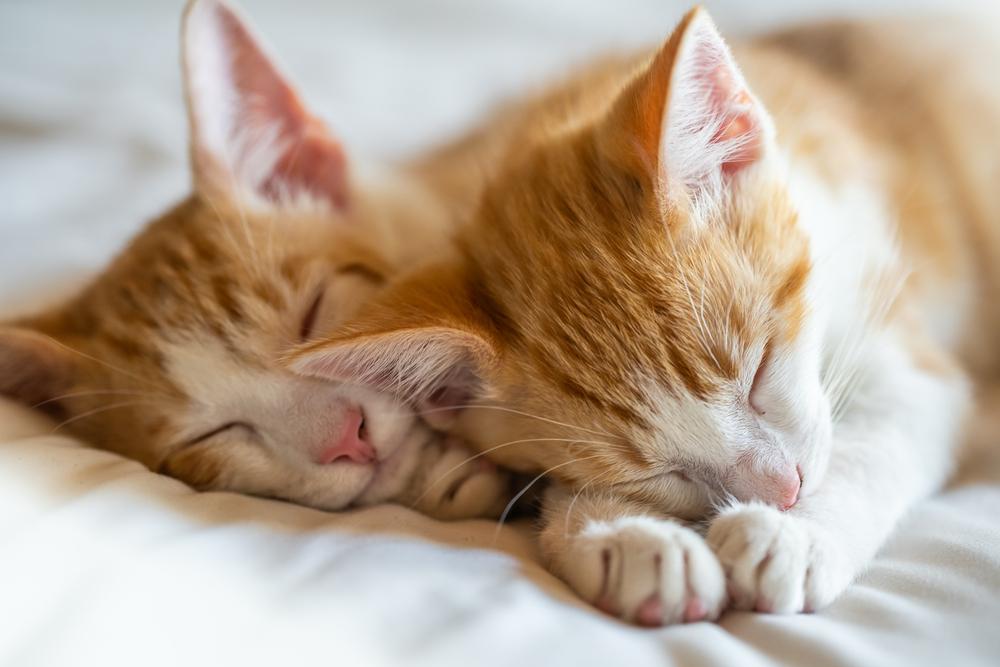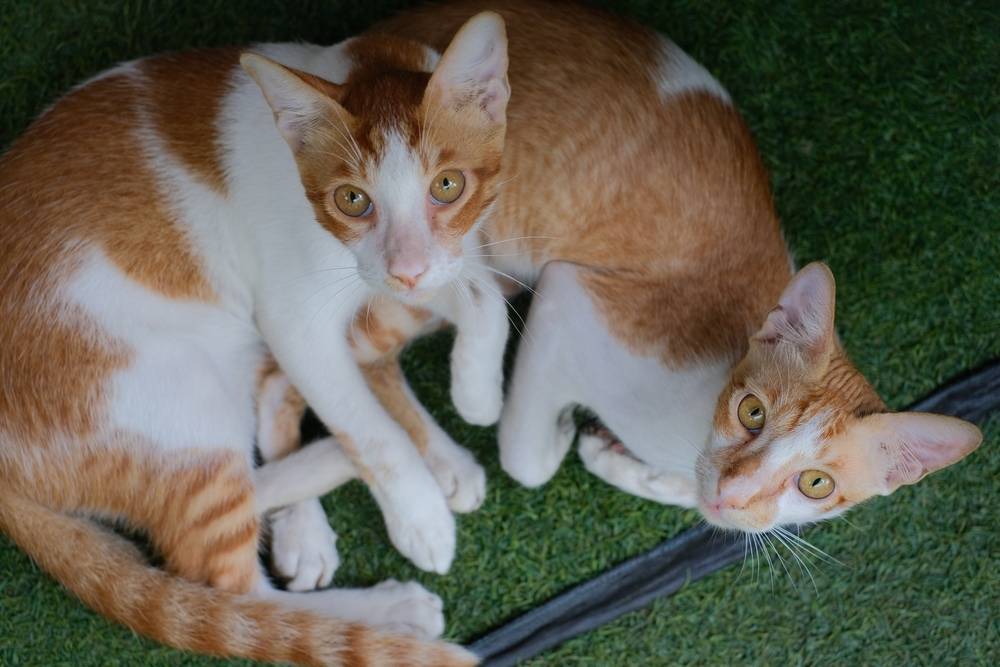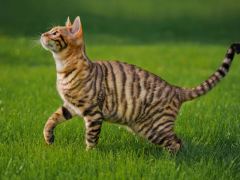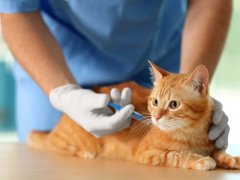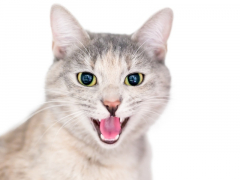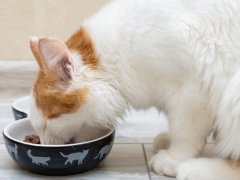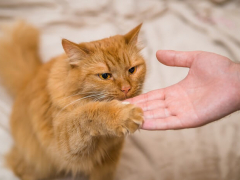Since 2005, it has been possible to clone pets at special cloning laboratories. Live or recently deceased pets can be cloned for pet parents who want to create a genetically identical pet and thus preserve their adored pet in the future.
Cloning pet cats is only available in a few laboratories worldwide and is illegal in many countries. Benefits of cloning include reproducing a pet genetically identical to another very special pet, the potential for protected species conservation, and promoting advancements in other scientific and medical fields. Pet cloning is controversial, particularly surrounding the use of egg donor animals and surrogate mothers, plus broader ethical concerns.Key Takeaways
High-profile celebrities like Barbra Streisand have talked openly about cloning their pets. In 2017, a pet owner named Kelly Anderson cloned her beloved cat Chai, who died at the age of 5. Her new cat, Belle, rapidly became a TikTok celebrity (@clonekitty), and since then, international awareness of pet cloning has snowballed.
Also Read: 12 Rare Coat Colors and Patterns In Cats
What Is Genetic Cloning?
Cloning creates an exact genetic copy of an animal, essentially an identical twin.
Artificial insemination has been practiced for many years, with sperm being cryopreserved until it is needed in many cases. But cloning takes this to a whole new level.
Cloning is the scientific process of replicating genetic material to produce an exact copy of a cell, tissue, or living being. With animals, you are effectively manufacturing an identical twin using laboratory techniques.
Since the 1970s, scientists have cloned mouse embryos, but it wasn’t until 1996 that an adult mammal was successfully cloned using the somatic cell from a sheep udder. The cloning of Dolly the sheep was the catalyst for the cloning of many other farm animals, and eventually, pets.
In 2001, scientists produced the first domestic cat clone called CC (short for Copy Cat). This was shortly followed in 2005 when a laboratory in South Korea cloned the first pet dog, an Afghan Hound. It took more than 100 pregnancies before one clone puppy survived.
Also Read: Basepaws Cat DNA Test Review (We Tried It)
Why Clone An Animal?
Cloning offers many potential scientific opportunities, including medical research and endangered species preservation.
Animal cloning has many potential uses. Most strikingly is the potential for medical applications, such as the synthesis of proteins to treat human disease in the milk of milk-producing animals. Through the development of scientific techniques used to clone animals, there has been an enhanced understanding of genetics, which has influenced other fields in human medical research, for example, diseases such as Alzheimer’s and diabetes.
In farming, cloning can produce animals with higher milk yield or better quality meat, although costs are still likely to prohibit this practice. In addition, cloning can produce replicas of high-value performance animals, such as horses. However, cloning is controlled by equestrian governing bodies and is banned in some sectors of the sport.
Cloning has also been explored in the conservation of endangered species and might be a way forward in saving species before or even after they become extinct. For creatures such as elephants with long pregnancies and a protracted time to reach sexual maturity, cloning might be the answer to reducing intervals between generations.
When it comes to cloning pets, the reasons for cloning vary. Most commonly, there is a motivation to have a new pet with the same characteristics as another, possibly deceased or elderly, beloved pet. Some cats have that unique quality that is hard to pinpoint. They might be exceptional characters that are deeply intuitive and bonded to their pet parent.
In that case, it is easy to understand the devastation of losing a special pet and how the later creation of an identical twin would be extremely comforting. In purebred cats and dogs, careful gene pool management could allow cloning to improve genetic biodiversity and prevent a rare breed from vanishing into the history books.
Also Read: 23 Interesting Facts About Cat Fur You May Not Have Known
How Do I Clone My Pet?
Pet cloning services are available through several companies worldwide.
Many companies worldwide offer genetic sample collection and will preserve, store, and culture cells prior to cloning. However, cloning pets is still illegal in many countries. In the United States, ViaGen Pets, based in Texas, is the leading company in pet cloning.
For the pet parent, the process of cat cloning is relatively simple. The complicated stages are performed in the laboratory once the initial samples are collected.
To clone your pet, a tissue sample must be obtained. To do this, your vet performs a skin biopsy on your current pet. The biopsy specimen is then sent to the cloning company, which undertakes the painstaking process of genetic preservation. DNA is extracted and can be frozen and kept for years.
When cloning is commenced, nuclear transfer is performed. Nuclear transfer involves replacing the nucleus in a donor female cat’s egg cell with the preserved DNA from your pet. Alternatively, an empty donor egg and your cat’s cell can be fused using an electrical current. The egg cell is then multiplied in the laboratory until it forms an embryo.
The embryo is implanted into a surrogate cat’s uterus. All being well, a normal pregnancy follows, and a genetic twin of your cat will be born. Once the kitten is old enough, they are rehomed to their new family.
Also Read: Pregnant Cat Nipples Vs Normal Cat Nipples: How To Tell The Difference?
How Much Does It Cost To Clone My Pet?
Cloning a pet is a pricey endeavor, costing $50,000 on average.
Cloning is a lengthy and technically challenging multi-step process; therefore, it comes with a sizeable price tag. Cloning a cat costs approximately $50,000 at the time of writing. The cost of genetic preservation and sampling fees might be in addition to this price.
Also Read: How Much Does It Cost To Own A Cat In 2023
Why Is Cloning Pets Controversial?
Ethical questions arise surrounding the use of surrogate cats, which are needed to produce cloned pets.
We’ve discussed the potential benefits of cloning and the hefty price tag. But there are other, potentially greater costs of cloning, and these trigger great debate and controversy.
Cloning laboratories require surrogate mothers to carry the cloned fetus to full-term pregnancy. Surrogate cats are specifically bred for use in the program, ensuring they are of good health and calm temperament. Despite laboratories reporting that these pets are well cared for, their primary purpose is to reproduce, often via cesarean section.
Surrogacy raises animal welfare concerns and poses the dilemma: Is it right for one animal to spend their life in a laboratory environment, experiencing repeated pregnancies in exchange for another pet’s life and for the benefit of a bereft pet parent?
Distinguishing this from regular breeding practices is also challenging. In many cases, the dogs and cats in a cloning lab might be better provided for than those being used by disreputable puppy or kitten breeders.
Unfortunately, the concerns surrounding surrogacy run deeper than this. Cloning involves egg harvesting from a donor queen and embryo implantation into the surrogate mother. These are medical procedures imposed upon donor and surrogate cats many times. Hormonal treatments can also trigger unpleasant side effects for these cats.
But that’s not all. Despite all the advances in cloning techniques, only a proportion of embryos will survive to birth, so there might be numerous miscarriages before the cloned pet is finally born. Therefore, several surrogates might be required for a single kitten to survive full-term gestation and be born alive.
Also Read: Cat Giving Birth: What You Need To Know?
The Wider Ethics Of Pet Cloning
Some people believe that cloning should not take place while homeless pets languish in animal shelters waiting to be adopted.
In domestic pets, if cloning were widespread, with multiple progenies being cloned from a single animal, the gene pool would be dramatically restricted. This would lead to issues of inbreeding and genetic mutations in future generations. So, from a health perspective, cloning on a greater scale has vast implications.
Some activists argue that celebrities and members of the public endorsing pet cloning in the media are diverting people’s attention from the increasing numbers of pets in rehoming shelters. Not only that, many believe that pet cloning companies exploit vulnerable pet parents experiencing bereavement.
Taking a broader view on cloning, some argue that cloning pets is just one step closer to cloning humans, which has more extensive and worrying ethical implications. The concept of human cloning is generally frowned upon and is illegal in many countries.
Also Read: Cat Pregnancy Calculator
Pet Cloning: Final Thoughts
High costs aside, pet cloning raises many ethical questions and discussions.
Pet cloning is a complex and controversial topic that often divides opinion. People who have cloned their pets derive great joy and comfort from the knowledge that a piece of their deceased pet still lives on. But cloning carries many ethical responsibilities surrounding those animals that make the cloning process possible and the wide-ranging issues that come with the ability to genetically manufacture identical living beings.
Also Read: 5 Reasons To Adopt A Special Needs Cat
Frequently Asked Questions
Do genetic clones always look identical?
Clones are genetically identical, so they are likely to look very similar, just like identical twins. But not all clones look exactly the same. Apart from genes dictating one's appearance, environmental factors and random gene expression are also highly influential.
In fact, the first cloned cat, named CC or Copy Cat, was quite different in appearance from her cloned mother. This is because genes in the female X chromosomes that express different colored fur can be randomly switched on or off in different individuals. Diet and exposure to different environments, life experiences, and diseases might also influence a cat's growth, appearance, and personality.
Can you clone an animal that has died?
Yes, pets can be cloned after death. Different laboratories recommend biopsies be collected within different timeframes. Up to five to seven days postmortem is commonly stated. Refrigeration is the preferred storage method prior to biopsy, and samples should not be obtained after the body of a deceased pet is frozen.
Can you clone a clone?
Theoretically, a clone is a normal living being, so the same cloning process can be repeated. This was famously performed with Snuppy, the first cloned dog. It is unclear, however, whether there are likely to be any repercussions after several generations of clones being produced.
-
https://www.genome.gov/about-genomics/fact-sheets/Cloning-Fact-Sheet Accessed March 28, 2023
-
https://www.viagenpets.com/ Accessed March 20, 2023
-
Kim, M.J., Oh, H.J., Kim, G.A., Park, J.E., Park, E.J., Jang, G., Ra, J.C., Kang, S.K., Lee, B.C. (2012). Lessons learned from cloning dogs. Reproduction of Domestic Animals. 47(4),115-9. Accessed March 28, 2023
-
Kim, M.J., Oh, H.J., Kim, G.A., Setyawan, E.M.N., Choi, Y.B., Lee, S.H., Petersen-Jones, S.M., Ko, C.J., Lee, B.C. (2017). Birth of clones of the world's first cloned dog. Scientific Reports. 7(1), 15235. Accessed March 28, 2023
